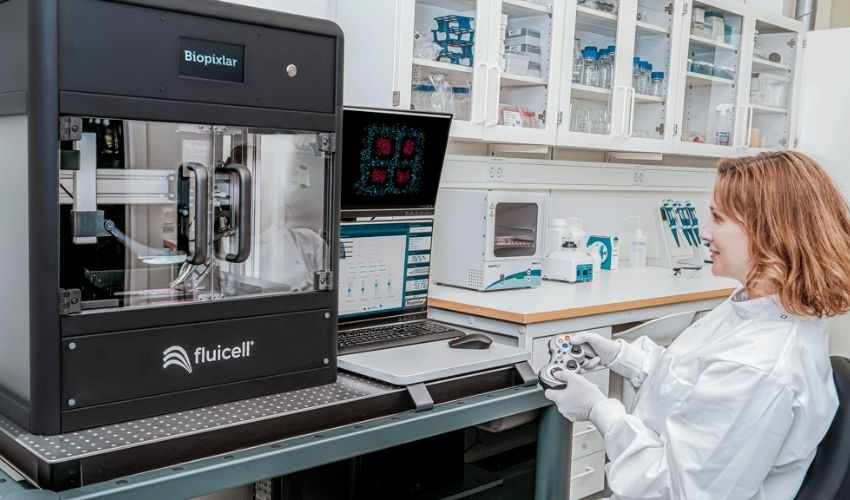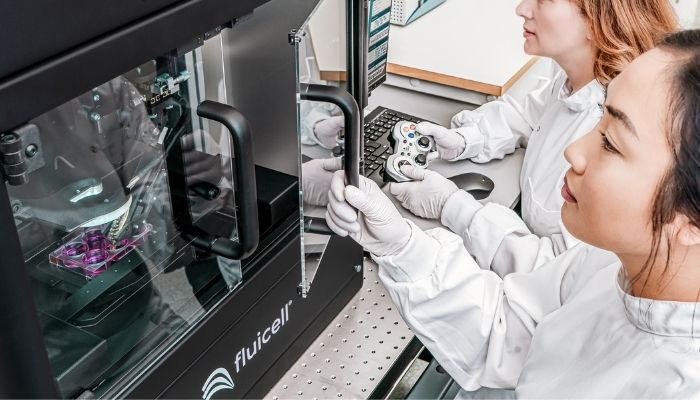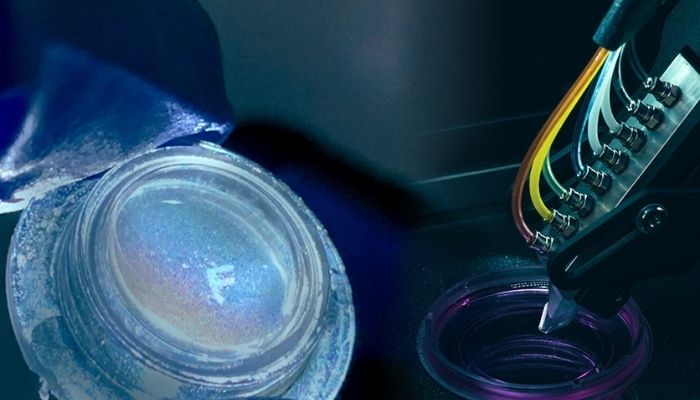Fluicell Develops Advanced BioPrinted Products for Diabetes

The field of medical bioprinting is rapidly advancing. Particularly, quite a bit of progress had been made in the medicinal application of 3D printing technologies for people living with diabetes. Companies have created 3D-printed pancreas models for childhood diabetes research, there have been devices such as the 3D-printed ring that can detect gluclose levels, and millions invested in research and development into 3D-printed drugs. Recently, Swedish biotech company Fluicell has pushed the needle forward in diabetes treatments with its latest project. Using its patented Biopixlar bioprinting platform, the company was able to make great strides in developing medicinal products based on their Biopixlar-generated tissues, succeeding in creating transferrable biocomposites that mimic the insulin-producing function of the pancreas.
This medical product development is singularly focused on the treatment of type 1 diabetes, which is an area of research that is significantly lagging behind others. In patients with type 1 diabetes, the body’s immune system breaks down insulin-producing beta cells in the pancreas. Now, with Fluicell’s latest bioprinting project, the research team observed insulin release from biocomposites as a function of glucose stimulation, a vital indicator of tissue functionality and one of the prerequisites for developing more type 1 diabetes treatments.

Fluicell Biopixlar
Biopixlar is Fluicell’s bioprinter that has the capability of positioning cells in three dimensions with high resolution and precision without the use of bioink—existing bioprinting methods rely on the use of cellular structures made from bioinks made with stem cells. “With Biopixlar, we can choose one or more cell types, including insulin-producing beta cells, and have control over their location and the histology of the resulting tissue. This is of crucial importance when it comes to both the function and longevity of the transplantable biocomposite. We see great potential in creating new tissue-based products for the treatment of diabetes as we move forward in the development work.”, explained CSO Dr. Tatsiana Lobovkina, who leads Fluicell’s research team.
Fluicell has enabled Biopixlar to also function as a global discovery platform for researchers to build biological tissues for drug development, disease understanding, and regenerative medicine research. You can learn more about Fluicell and their biotech research HERE.

What do you think of the contributions 3D printing technologies are making in diabetes research? Let us know in a comment below or on our Facebook and Twitter pages. Don’t forget to sign up for our free weekly newsletter, with all the latest news in 3D printing delivered straight to your inbox!
Photo Credits: Fluicell






